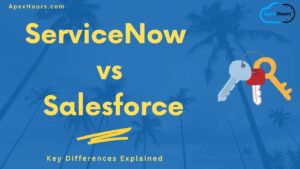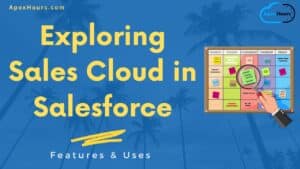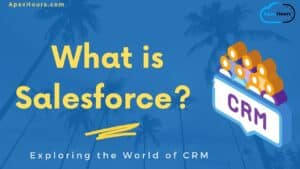What is Salesforce CPQ?
Salesforce CPQ, also known as Configure-Price-Quote, is a powerful cloud-based software solution designed to streamline the sales process for complex products and services.
CPQ empowers sales teams by providing them with easy-to-use methods of configuring products, and calculating accurate pricing to generate reliable quotes and proposals in line with the company’s offerings. By automating these crucial tasks, Salesforce CPQ eliminates manual errors, reduces sales cycle time, and enables sales representatives to focus on building strong customer relationships and closing deals.
While CPQ offers huge benefits to a business, it has its challenges. Building an effective CPQ implementation requires technical knowledge that goes beyond knowing how CPQ works. In order to be successful, a thorough and deep understanding of the business’s sales operations is needed.
“You can’t just slap CPQ on top of existing business processes and have it transform your work. You have to stop and look at how you sell your products, how you price them, how you combine them together for sales, how you support them and every step in between and be willing to question that process. Be willing to simplify”
— Janeen Marquardt, Salesforce Consultant
CPQ is also fiendishly difficult for newcomers to test and deploy. This means niche skills, understanding, and tooling is needed to succeed.

Businesses underestimate the difficulty of CPQ implementations
Businesses often invest in Salesforce CPQ to solve a problem in the sales department. But they may be blind to, or underestimate, the complexity and challenges of CPQ implementation projects.
“How long does a CPQ implementation project take?”
It depends” — Bill Powell, Salesforce Consultant
There appears to be little to no research on how long a typical project takes to implement, but anecdotal conversations with CPQ specialists suggest that projects vary from 6 months to over two years. There are also reports of multiple attempts to implement CPQ in some instances. Some do suggest that Salesforce implementation can take 6 weeks, but then consultants ask the question ‘If it’s that easy to implement, did you even need CPQ in the first place?’
Many businesses seem unaware of how long it can take to realize value from their implementations. The old adage “time is money” is especially apt in this instance. Teams that we spoke with explained that clients often don’t realize how much time and money needs investing after purchasing Salesforce CPQ. Long implementation times and missed deadlines come as a nasty shock.
CPQ experts regularly recall that they stumbled into this specialism accidentally. There is a skills shortage, and CPQ specialist roles are difficult to fill. As a result, a developer or admin is cherry picked as the new “CPQ lead”, leading to frustration for both the CPQ lead and business leadership. The CPQ lead is now responsible for a devilishly challenging project, and business leaders don’t understand why time to value is taking so long. This is often when inexperienced buyers of Salesforce CPQ turn to consultants who are brought in to support and tackle the challenge.
The decision maker and buyer of the consultancy services are often from a non-technical role eg. Head of Sales. This is a challenge for them as buyers, as lack of technical knowledge and experience can make buying technical services confusing and difficult. This can present a challenge for the SI partner, too. Competing for the sale, while delicately managing expectations is an art. It’s not unheard of to be selling against competitors who over promise, only to under deliver. The most successful consultancies know how to educate clients while navigating the sales cycle, putting in work up-front to de-risk the project later down the line.
Selling CPQ implementation projects
Occasionally, clients will have a stakeholder internally who has been involved in a CPQ implementation project before. However, more often than not, the buyer will never have been involved in such a purchase. Navigating the market and the technical jargon is a challenge. Expectations may often not be accurate and the stakes are high. When the whole point of purchasing Salesforce CPQ was to unlock value and realize ROI, implementation can result in a rude awakening.
Consultancies can help clients realize value during the evaluation stage. Don’t sell to them; help them. Being upfront and candid about how to navigate the market is what they need from you. Telling them what they need to look out for, how to identify red flags, and the expertise you bring as a consultancy allows you both to understand whether you’re a good fit. This approach mitigates your bias, and often helps the prospect to qualify themselves out in a mutually beneficial way. They’re best placed to choose the right service implementation partner that suits their culture and working style, and you dodge a bad fit project without rejecting them.
Communicate clearly what they should look for in a partner and explain the importance of each of the following steps in the buying process:
- Discovery workshop.
- Prework needed by the client:
- What will be the impact on their team and what do you need from them to deliver?
- What impact will their internal deadlines have?
- What changes, if any, are forecasted for their products and pricing model? Should the project be paused to align with that?
- Make it clear that customers underestimating the amount of resource commitment needed from their side is often the biggest and most unaccounted risk in projects. You will want to help them preempt this for both you and their sake.
- Division of responsibilities between your team and theirs.
- Agreement on timelines across all stakeholders.
- Consider ERP and other system integrations, any parallel work required, and how that may overlap impact responsibilities and timelines.
- Show the client documentation from previous projects and explain the importance and value to them. An inexperienced technical buyer may not know to ask for this.
- Offer the opportunity to conduct referral calls from happy past clients.
The role of Salesforce consultancies in CPQ implementations
Salesforce consultancies can play a crucial role in the successful implementation of Salesforce CPQ. These consultancies are specialized teams of experts who possess deep knowledge and experience in Salesforce’s suite of products. They work closely with organizations to understand their unique business requirements and tailor the CPQ solution to meet their specific needs. Their exposure to many CPQ implementations means that they’re able to tackle the unexpected nuances of complex projects.
Salesforce consultancies provide valuable guidance throughout the implementation process, from initial planning and system configuration to data migration. During the project they may train the in-house team to be able to hand the reins back to the client so they can successfully manage post-implementation. Using their expertise, they can ensure a smooth rollout by integrating it with existing systems and processes, optimizing its capabilities in line with a business’s sales objectives.
After the major milestone of the initial project is completed, consultancies frequently offer ongoing support and maintenance services. Their goal is to make sure the CPQ system remains up-to-date, efficient, and aligned with changes to the business, such as the introduction of new product lines or discounting mechanisms.
Considerations for quoting a CPQ implementation
When quoting a price for a Salesforce CPQ implementation, you need to consider several key factors to ensure an accurate and holistic estimate. These factors include:
Backup: Before starting any configuration or deployment (CPQ or otherwise) it’s essential to check whether the client has a comprehensive backup strategy. This should include regular backups of both data and metadata, as well as a restoration plan. This ensures protection in the event of data loss, metadata corruption, or broken changes making it to production that could severely delay project progress should lengthy restorations be needed.
Stakeholder buy-in: When qualifying prospective clients for projects it’s vital to consider the buyer’s authority and to confirm that the wider team is bought in. CPQ impacts many parts of the business and reluctance from other departments risks the success of the project.
“Make sure you have buy-in from executives, sales, finance, marketing, legal, analytics, and IT. It is doomed to fail if only one team wants it and tries to force others into it.”
— Scott Shapiro, Salesforce Application Architect
Project scope: Assess the scope of the project, including the business-specific requirements, functionalities, and features to be implemented. Understanding the complexity and scale of the client’s sales function is crucial for estimating the effort, resources, time needed, and managing client expectations. Be sure to include buffer time. There’s always something unexpected.
“Where things get complicated:
- You have unique pricing for product based on conditions
- There are bundles with unique configurations
- There are complex quote docs
- Renewals and Amendments need unique care and attention
- Approvals go beyond “ask Nancy for approval”
- There are rules around what products can be quoted
- Automated discounting..
Oh man.. I could go for a while..”
— Anonymous, Technical Architect Director, Salesforce
Customization and configuration: CPQ implementations involve heavy customization and configuration to align with the client’s unique business processes. Consultancies need to evaluate the level of customization required, such as creating custom price rules, product configurations, or quote templates. Customers may not know how many options are available to them. They need to dictate what they want the final outcome to be. It’s important to work with them to map out their existing commercial operations and decision paths.
Documentation: Customizations and configurations allow businesses to create bespoke solutions. But this also means that newcomers, regardless of their experience, will have no context on what’s been built. Easily accessible and accurate documentation will benefit your clients and your colleagues in the long term. Clients will appreciate being made aware of the risk to the business by not having documentation. If the unique configuration lies solely within the heads of the development team (and you) and that team leaves (all good things must end) it’s important that someone can step in.
Integration requirements: Analyze the integration needs of CPQ with other existing systems, such as ERPs or billing systems. Integrations can vary in complexity and are important to ensure seamless data flow between systems.
“A good CPQ project will consider beyond just the ERP system. Consideration of not only invoicing, but other systems that can include license provisioning, contract lifecycle management, reporting, analytics, shipping, and/or systems that may be required due to regulatory practices (SEC, healthcare, etc.). All these should be considered when implementing CPQ which will add to the cost. Even if it’s not handled today, a good CPQ implementation should consider the entire roadmap and all business functions that quote-to-cash.”
— Bill Powell, Salesforce Consultant
Data migration: If there is existing data that needs to be migrated to CPQ, scope the volume, complexity, and quality of the data. Data cleansing, transformation, and migration efforts should be factored in. Many consultancies steer clear of data migration. Make sure to clarify this with your customers upfront. They may not know to ask and you can help them to preempt this.
DevOps: A big challenge of CPQ projects is the nature of the metadata and data configuration. The time to talk about DevOps strategy is right at the offset at the beginning of any engagement with clients. Much of CPQ resides as “config data” in Salesforce. This makes developing, testing, and deploying the configuration through sandboxes to production highly challenging and manual. Consultancies may look to invest in CPQ-specific tooling, such as Gearset for CPQ, to help manage this process. The right tools make deployments quicker, safer, and more reliable. This gives consultants the ability to scope predictably, quote more accurately, and deliver faster. For clients this amounts to lower consultancy fees, the ability to realize value from their investment sooner, as well as increase the likelihood of meeting project deadlines.
In an ideal world, the customer would own and pay for the deployment tool license and give access to the consultancy team. Consultancies try to encourage this by including their preferred tool in their sales pitch. Benefits to their clients are that after the implementation project, the handover and ownership of the tool is smoother and easier.
The client hiring the consultant is often someone non-technical, for example a business owner eg. Head of Sales, and it’s not always possible to persuade them of this without risking the sale. In this instance, consultancies can pay for the license themselves and invoice the client. This is better for the client as the costs are all listed under one vendor.
For consultants this can be a real thorn in their side if the deployment tool only offers contracts of 1 or more years. Monthly plans are lower in risk to consultancies and have a lower impact on cash flow. When clients insist on not paying for the tool, consultancies still realize the benefits as tooling positively impacts on their ability to deliver projects quickly and reliably and so may soak up the costs into their overheads.
In rare instances, some clients have been known to insist on not paying for a tool at all. These projects often fall to your most senior CPQ specialists. These unicorns have an unusually high pain threshold and take on manual deployments willingly, but as a result come with a higher cost due to longer implementation times and the billable hours needed of a senior consultant.
User training and change management: Implementation success depends on user adoption and proficiency. Consider the training needs of the client’s users and the level of change management support needed to ensure a smooth transition and user acceptance.
Ongoing support and maintenance: Account for post-implementation support and maintenance services. You’ll be able to realize the retainer potential of the client early on — clients can hire you solely for implementation with a known exit objective. Depending on the client’s capacity and skills, there’s an opportunity to be engaged as a fully outsourced solution.
Timeline and project management: Consider the estimated project timeline and allocate resources in line with it. Factors such as project management, deployment, communication between consultant and client, and coordination efforts should be factored in.
“[Our implementation] took us a year, and this is because we stopped optimizing for CPQ at some point so we could at least deploy something. I have now been working on “phase 2” for 2-3 years (our business model is complex and data structure pre-CPQ was needlessly complicated).
— Anonymous, WebOps Supervisor
I would still do it again, the ROI is amazing and the “CPQ standards” helped us convince management to simplify some of their business practices.”
Consultancy expertise: The level of expertise and experience of the consultancy team should also be taken into account. Highly experienced consultants may come at a higher rate, but are likely to deliver a more efficient and successful implementation.
Help customers understand CPQ to manage expectations
Buyers of Salesforce CPQ and consultancy services often don’t have technical experience, so they won’t necessarily appreciate the project risks outlined above. Help them to navigate the market, and set up fantastic business relationships by being transparent and setting realistic expectations for prospective clients.
For more information on how to cut the complexity from CPQ release management download this free whitepaper on Salesforce CPQ deployments.




